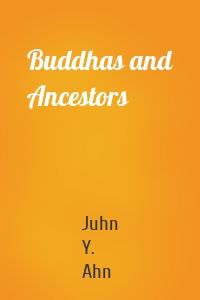Juhn Y. Ahn
1 кн.
Buddhas and Ancestors
Two issues central to the transition from the Kory to the Chos n dynasty in fourteenth-century Korea were social differences in ruling elites and the decline of Buddhism, which had been the state religion. In this revisionist history, Juhn Ahn challenges the long-accepted Confucian critique that Buddhism had become so powerful and corrupt that the state had to suppress it. When newly rising elites (many with strong ties to the Mongols) used lavish donations to Buddhist institutions to enhance...
| Автор | Juhn Y. Ahn |


